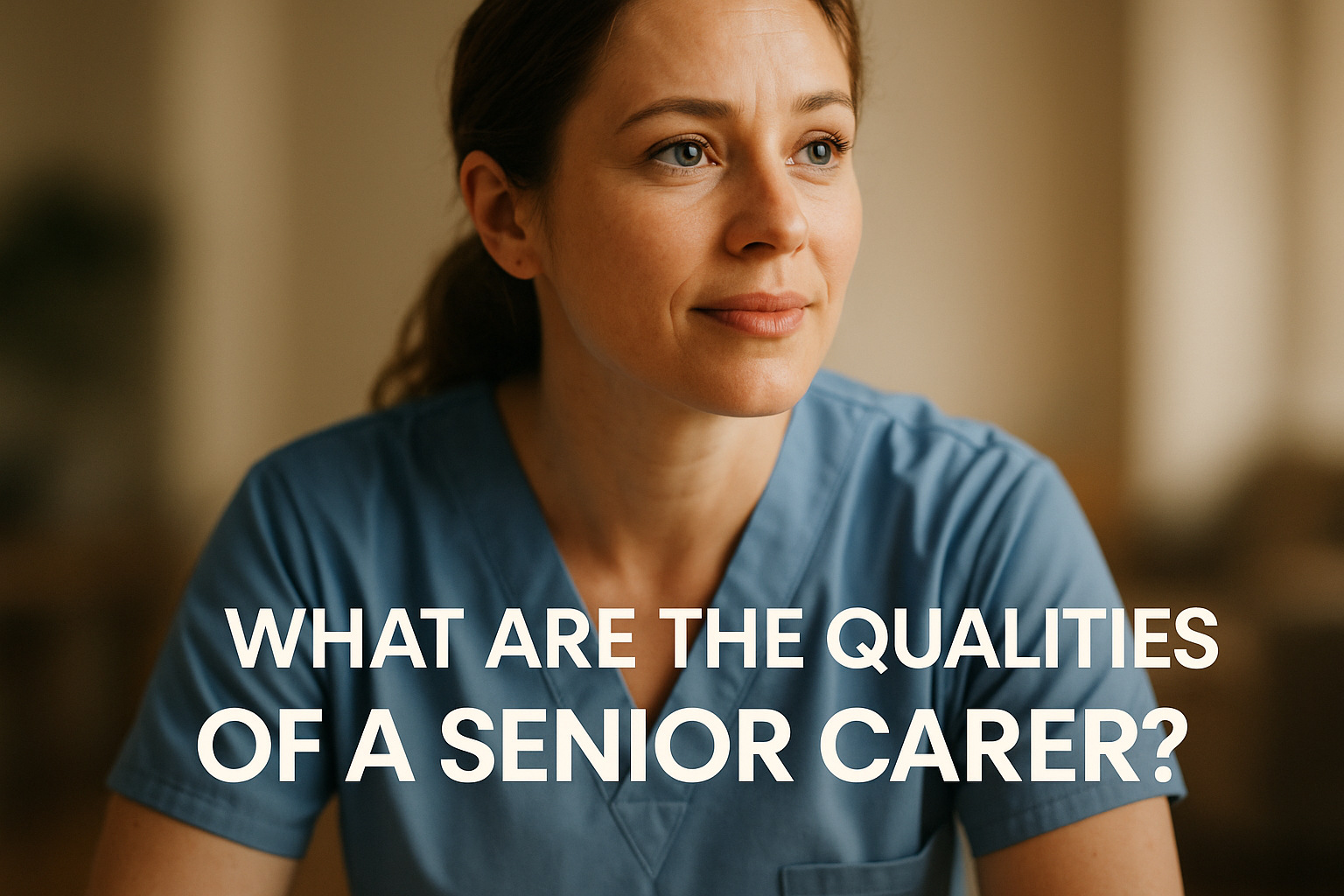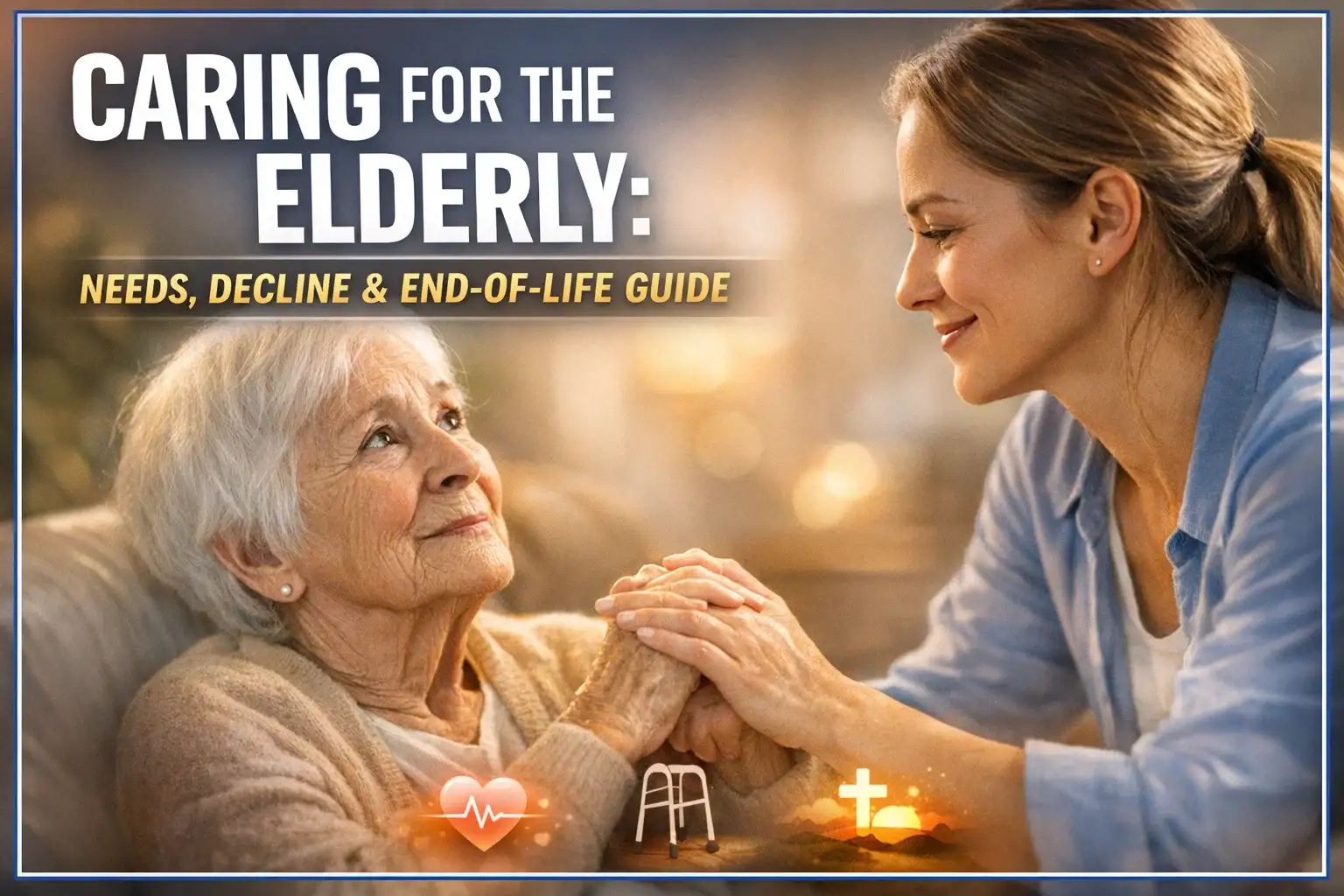It will be rewarding as well as challenging to care for someone who we love and to keep him or her comfortable for the last several days of his or her life. The Role of a Senior Care Worker From changing color effects to preventing estrus who can tell the history of the European Regulation in the process of entering, the background is a “troublesome” mother who is familiar with “devil’s lines.” However, It is! Senior care workers have a very important job in the life of a senior, which is to help to enhance the quality of life for the aging population, in which they provide companionship and the support required so that the elderly can live with dignity, respect and as much independence as they can. But what does it take to be a great senior carer? In this article we explore what a good care worker -carer is and we also look at the essential characteristics that are needed when caring for the elderly for a better quality of life.
Core Qualities Every Senior Carer Should Have
Compassion and Patience
Empathy: The key quality of any senior carer is compassion. Taking care of old people requires a large heart full of empathy, care, and patience. Older people can become unable to keep up with their daily routine, especially if they are still dealing with physical or chronic conditions, and they are to help in patience and love. An empathetic care giver can make the elderly feel that all such are attended with care and love or heard and that is so important for their emotional and physical health.
Patience is equally important. Of course they can also figure out a longer time to completion, who can take them by the hand for simple tasks, who cannot because of memory or mobility problems. An unflappable carer who is old enough not to kowtow helps enormously in protecting the dignity of the old.
Communication and Listening Skills
Communication is key in senior care. The good carer has the facility for speaking and for listening. Most of our seniors are either going to have problems speaking or understanding and a carer who can just communicate in that simple, clear and very kind way, really, is the best we’ve got to offer our seniors.
Moreover, listening actively is essential. Old people may long to talk, to speak their feelings, their thoughts, to remember, and the listener carer can acknowledge them. Communication is also necessary to deal with medical problems, informing family members and working with doctors.
Reliability and Responsibility
Senior carers should both be ultra-reliable and completely responsible. The elderly are particularly vulnerable as they typically rely on others for shielding, social contact and attention to their health. Dependability, promptness and commitment to continuity of care are essential in this role.
A reliable carer is someone who will do what they say they will – whether it is handing over your medication, helping you in the shower, or getting you to your appointment on time. An elderly person just needs to know that the person who is caring for them will come to them every time they call.
Knowledge of Elderly Needs and Conditions
Furthermore, as a senior caregiver, you need to understand very well what the physical, emotional, and cognitive needs of seniors are. They should know what health issues typically come with age (arthritis, dementia, diabetes, etc.) and how they should be smart about them.
This knowledge helps carers to care safely, avoid injury and when to seek medical advice. How a carer approaches and manages these health issues is critical to the well being of seniors.
Some Safety Tips for Seniors at Home
A senior carer’s biggest and number 1 responsibility is to make the environment of a senior as safe as possible. It is a place where they don’t have to fear accidents, such as a fall (a leading source of injury in elders). Here are a few important safety guidelines:
Clear paths: Keep all hallways and rooms free of items to minimize tripping hazards.
Non-slip mats: Use them in the bathroom, kitchen, or anyplace that tends to get wet.
Install grab bars and handrails: Install grab bars in the bathroom and handrails on stairs to help people stay steady.
Bright lighting: Ensure the home is well lit from corner to corner to help seniors navigate without accidents.
Emergency contacts: Keep emergency contacts easily accessible and, if applicable, help seniors find help as quickly as possible.
How Do You Make a House Senior Friendly?
Creating a safe environment for the elderly in the home is not just a question of adding grab bars or building ramps; it is also about supporting mental and emotional well-being. In addition to measures that should be taken to keep your child safe, such as ramps, heavy furniture to block doors and emergency alert systems, you should also:
Simplify the environment: If you don’t need furniture to reach things, remove it.
Temperature control: Keep the house at a comfortable temperature : extreme temperatures lead to both hot or cold-related issues.
Personalized care: Personalize the living space for the senior — be it a more specialized chair, a walking aid or custom kitchen setup.
Supporting Seniors Beyond Physical Care
Why Socializing is Important for the Seniors?
Older people really need that social interaction but they just can’t do that. Older people, particularly those who live alone or have mobility problems, can feel lonely. It can also contribute to depression, anxiety or even physical decline. Encouraging face-to-face interaction with their peers can really cheer them up, reduce stress and it can even raise their immunity.
The responsibilities that come with caring for some of these patients are more than just being there to provide the necessary physical care. Speaking with your elderly, encouraging them to get involved in activities and the community can assist in the prevention of loneliness and lead to a better quality of life.
The benefits of socializing for seniors are plentiful:
Improved mood: Regular check-ins keep the senior engaged and reduce feelings of loneliness or depression.
Cognitive stimulation: Conversation and social engagement keep your brain sharp, learning all the time, which are all safeguards against cognitive decline and a debility such as dementia whatever your age.
Better physical health: Social interaction keeps older adults out and about more, whether it’s walking, taking part in a group activity, or just communicating with others.
Stronger emotional bonds: Being social allows for increased bonding, meaning that seniors will also have someone they can rely on.
How Carers Can Encourage Engagement and Companionship
Carers can support engagement by:
Organizing social activities: Arrange regular contact (weekly visits from friends or family those who don’t live with them) or engage the senior in outside social activities.
Encourage Hobbies: Encourage user to engage in hobbies (e.g., reading, knitting, painting) in which the user has an interest Promoting Participation in Hobbies.
Staying involved: A brief daily interaction, whether it be a chat or game or walk, can help sustain companionship and ward off isolation.
Conclusion:
It’s not just caring for the senior physically, but enhancing their well-being. Elderly care workers are able to vastly improve the lives of old folk, and empathy, safety and socialising are key parts of the job. A great senior carer helps you build trust and respect and makes a difference to the senior’s day. Their role is not just to manage health conditions but to nurture joy, security and companionship.
For expert Care givers contact us at Precious Pearl Home Health Care. Our expert staff is here for your nearest and dearest with compassionate, dignified care.
FAQs
What are the key duties of a senior carer?
Senior Carer responsibilities and key tasksAs a carer you will support with everyday tasks, medication, emotional support, support around the home, and social activities. They also liaison with health care practitioners for health care management.
How do I make my home senior friendly?
Designing your home to be senior-friendly includes accessories and elements that you might not see, but are ideally designed to keep the senior resident safe and comfortable. And it’s particularly important to ensure the home is comfortable and accessible.
Why is socialization as important for seniors anyway?
Socializing ensures that the elderly are still going out, keeping them active and preventing isolation that might lead to depression, cognitive decline and poor health. But both involvement in society and remaining active can lead to a good-quality life.






